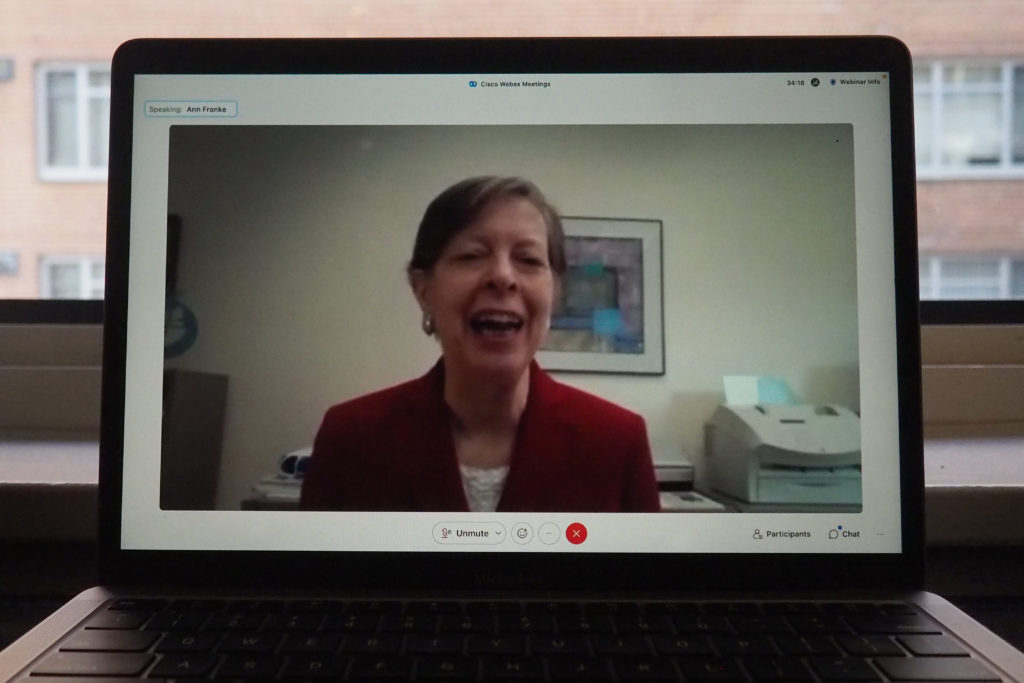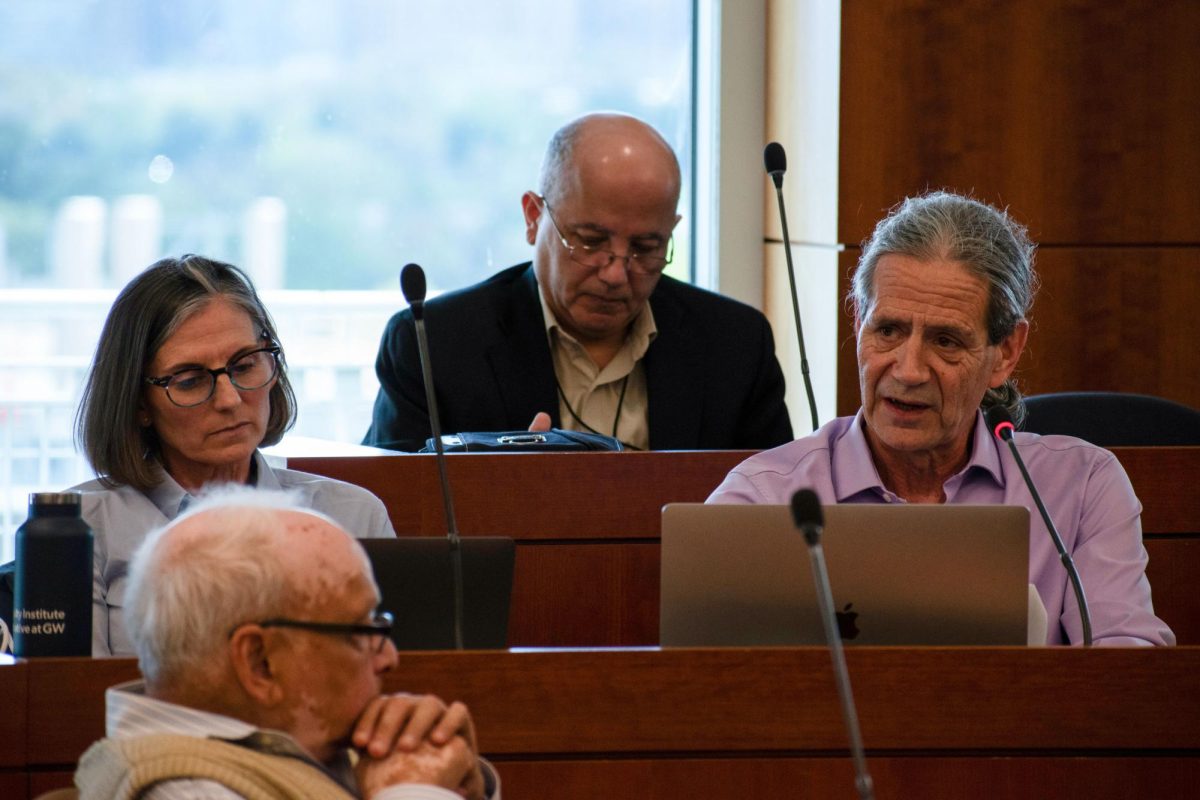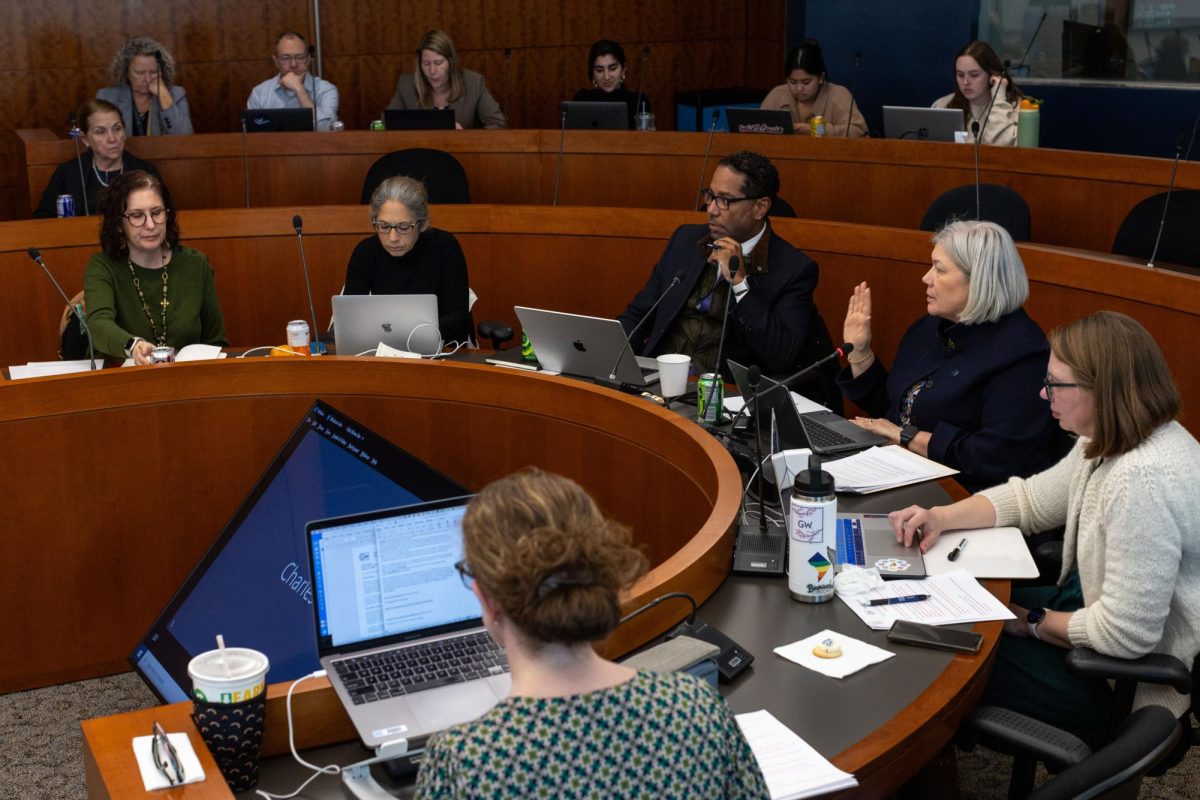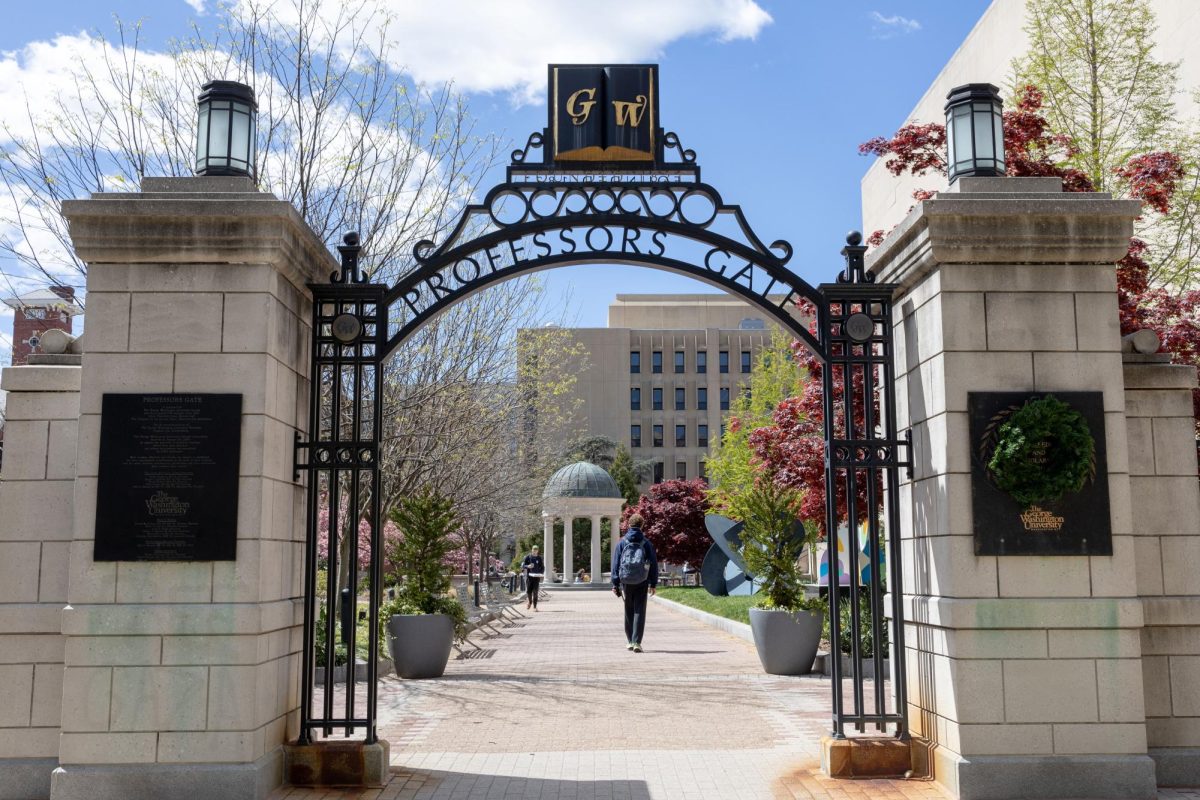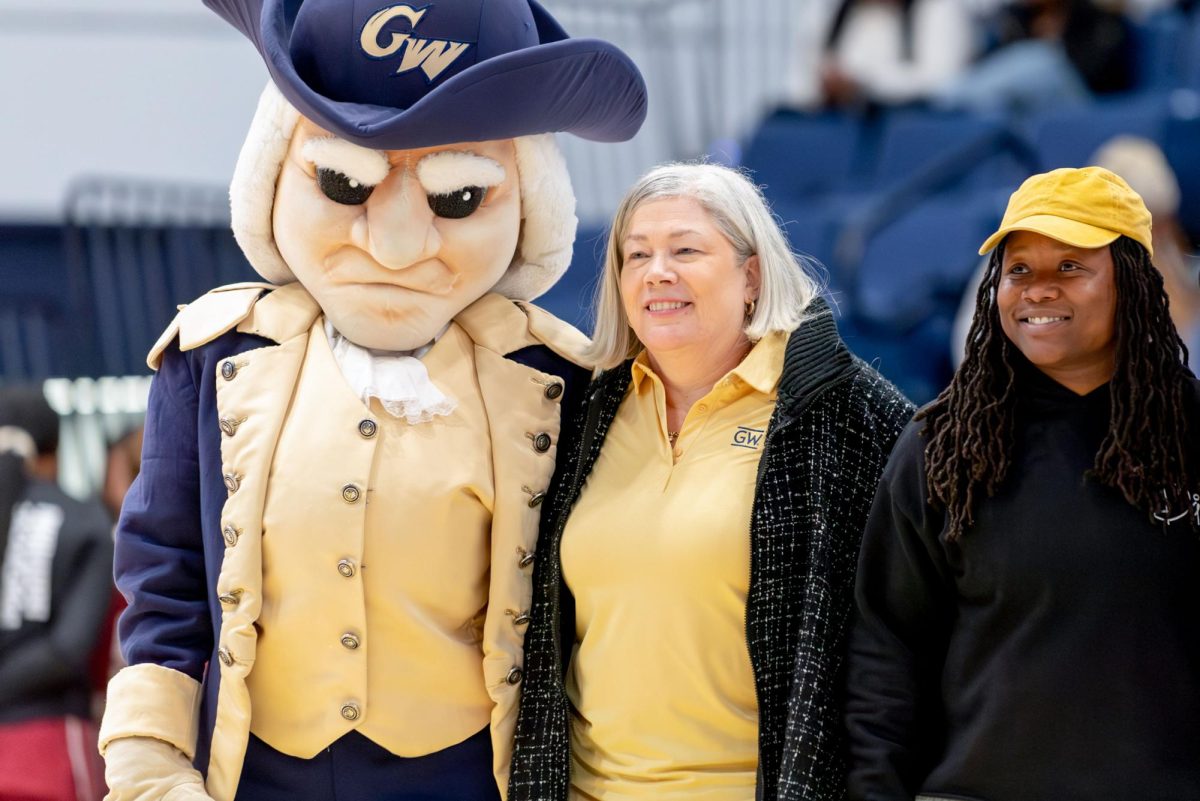Faculty called for increased opportunities to collaborate with the Board of Trustees and increased transparency at a series of virtual town halls last week convened as part of officials’ push to strengthen shared governance.
A task force of faculty, administrators and trustees spearheading the initiative organized the town halls to gather feedback from professors, which they will use to develop recommendations on how to improve shared governance that are expected to be considered by the trustees in May. The initiative comes after faculty repeatedly voiced concerns over violations of shared governance principles in recent decision-making, with hundreds having cited the concerns in their calls for former University President Thomas LeBlanc’s resignation leading up to the end of his tenure.
Board Chair Grace Speights announced GW’s plans in September to improve shared governance through the task force, which will also make its recommendations based on a soon-to-be-launched survey.
Ann Franke, a former tenured general counsel for the American Association of University Professors, and David Maxwell, a senior consultant and fellow with the Association of Governing Boards, facilitated the town halls.
“Your feedback on these questions will be instrumental in helping us shape the work of the task force going forward,” Maxwell said to faculty at the first town hall.
Officials outlined the same four questions at each of the town halls, asking how faculty recommend administrators and trustees shape shared governance. Professors spent the meetings responding to the questions on how collaboration, decision-making, information-sharing and faculty expertise can influence shared governance, University initiatives and strategic planning.
Interim University President Mark Wrighton attended the meetings, which took place from Tuesday through Thursday, and thanked faculty for providing their input and committing to improving shared governance.
“This shared governance task force is a very important undertaking, and I know that we can make some important progress in a short space of time of several months,” he said at Tuesday’s meeting.
The task force is comprised of trustees, faculty and administrators, each with four members.
Interim Provost Chris Bracey, one of the task force’s co-chairs, Senior Vice Provost Terry Murphy, Columbian College of Arts and Science Dean Paul Wahlbeck and Interim Deputy General Counsel Richard Weitzner make up the administration membership on the task force.
The faculty on the task force include Christine Pintz, a professor of nursing, and Shaista Khilji, a task force co-chair and professor of human and organizational learning and international affairs. Joe Cordes, a professor of economics and public policy and public administration, and Arthur Wilson, the chair of the Faculty Senate’s executive committee and an associate professor of finance, also represent faculty on the task force.
Trustees Amr ElSawy, a task force co-chair, Mark Chichester, Madeleine Jacobs and Todd Klein also serve as members.
Faculty said at the town halls that they want to develop an easier way to communicate with the Board to help strengthen shared governance. They said trustees should sit in on senate committee meetings and host faculty dinners to get a better understanding of professors’ priorities.
Forrest Maltzman, a professor of political science and a former provost, said officials should encourage input from the GW community when developing the University’s priorities to establish shared governance. He said because GW’s physical space as an urban campus is so limited, any decisions about the use of campus space would reflect the University’s priorities that the faculty should help develop.
“Ultimately I think these decisions do get made by the Board, but I would hope that the Board would not want to be making those decisions without having a recommendation from the faculty through the administration to the Board,” Maltzman said at Tuesday’s town hall.
Maltzman said shared governance at GW has historically worked “pretty well,” recalling when officials made changes to the Faculty Code in 2019, but administrators’ collaboration with community members began to decay when officials started to present University-wide decisions to the Board before the faculty.
“I think it was with the best of intentions that occurred, but what happened was the administration found that going to the faculty was very cumbersome, and it does take some time and it does take some effort,” he said. “The Board wanted to support the administration as well they should, and so we ended up in a model where decisions started at the Board and were never shared with the faculty, and that caused a lot, a lot of turmoil there.”
Eric Grynaviski, a faculty senator and associate professor of political science and international affairs, said shared governance has weakened over the years partly because the Board may not always see the long-term implications that budgetary decisions may have on the day-to-day lives of GW employees.
“It’s important to make sure that we incorporate all of the perspectives and the people who make the decisions appreciate all of the problems or opportunities that may be created by changes which may not seem important from the perspective of where they’re set,” Grynaviski said.
He said administrators should serve as a liaison for faculty and trustees and communicate the Board and faculty’s priorities to each other.
“It’s trying to form a consensus between members of the community including the Board and the faculty so that we appreciate the common challenges we face and also helps make sure that people are involved in participating in the solution so that everybody is rowing in the same direction, rather than rowing in different directions,” Grynaviski said.
Ellen Kurtzman, a professor of nursing, said last Wednesday that administrators’ constant communication about the COVID-19 pandemic has been “stellar,” but officials don’t consult faculty senators on decisions they make before they are released to the public.
“A lot of that information sharing occurs after decisions have already been made, rather than in consultation with the faculty representatives,” she said.
Jennifer Brinkerhoff, a professor of international affairs, international business, public policy and public administration, said last Wednesday administrators should consult faculty with relevant experience in University-wide initiatives through methods like surveys. She said using faculty members’ expertise is a sign of “respect,” and administrators should consider the range of knowledge and faculty’s willingness to volunteer.
“I think there are specific tasks for which we are highly qualified as a collective, and that expertise should be tapped under those circumstances, especially,” she said.
Brinkerhoff said officials should incorporate shared governance into their long-term strategic planning initiatives. She said the University’s collaboration with faculty to develop a “shared understanding” of issues like lower enrollment levels will determine shared governance reforms.
“We all are aware that higher education is facing some really critical junctures in terms of enrollments, and we’re going to have some tough decisions in the future,” she said.
Erika Filter contributed reporting.


